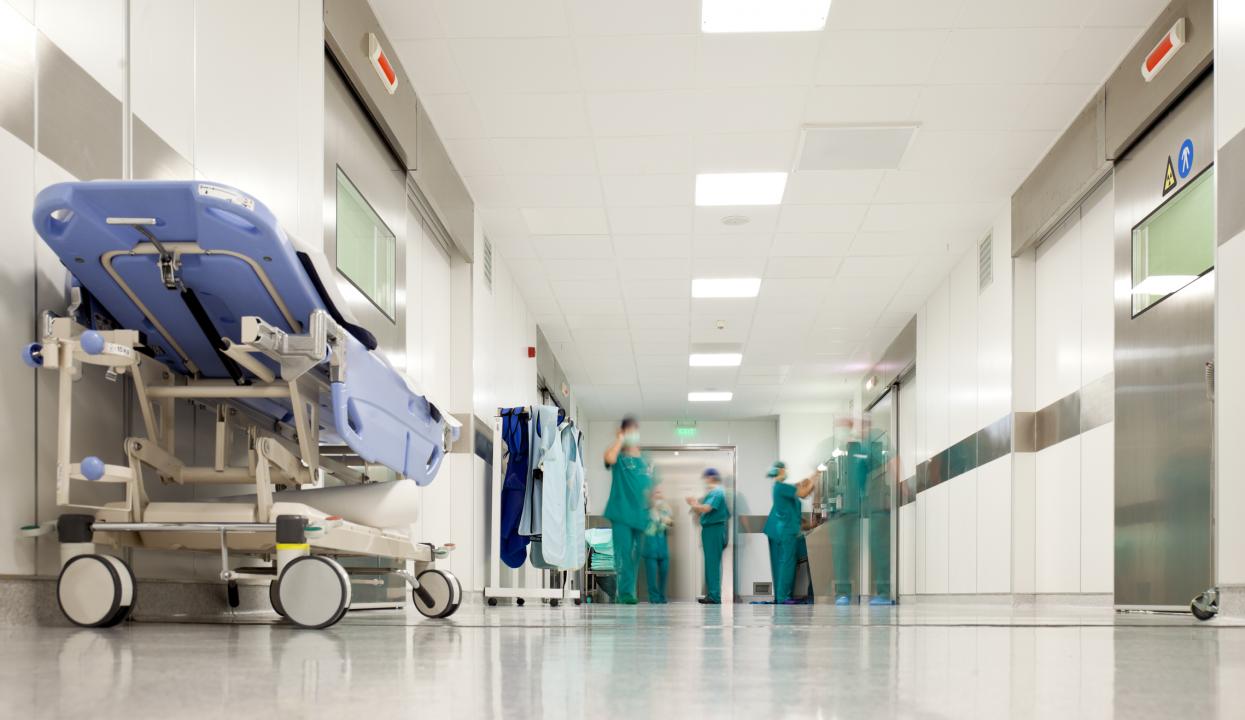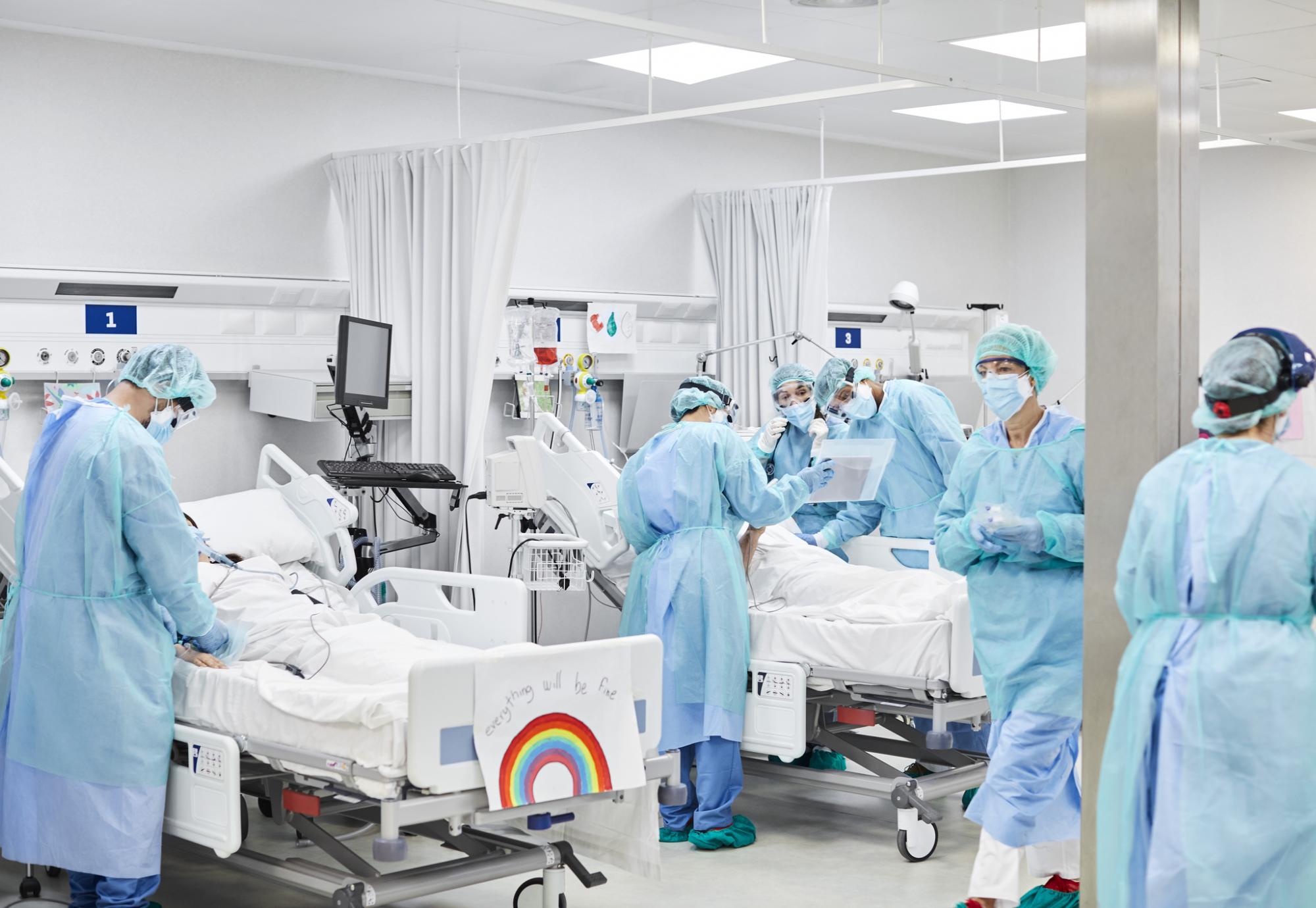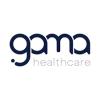Yvonne Carter, Clinical Director of GAMA Healthcare and previously Head of Infection Control at Royal Free London NHS Foundation Trust, says lessons need to be learned from the pandemic.
For the past 18 months Covid-19 has been our predominant problem but now is the time to focus on life after the pandemic.
Transmission rates of Healthcare Associated Infections (HCAIs) such as MRSA and C-difficile have dropped in many cases due to fewer patients in hospitals (receiving routine or elective treatment) and the Covid-19 pandemic safety measures recently introduced, but these bacteria and viruses are still present.
As routine surgery and treatment resumes, more patients, and indeed healthcare professionals, will come into contact with microorganisms causing HCAIs and other drug resistant organisms.
There were an estimated 653,000 HCAIs among the 13.8million adult inpatients in NHS general and teaching hospitals in England, of which 22,800 patients died as a result of their infection during 2016/17. There were also an estimated 13,900 HCAIs among 810,000 frontline HCPs.
Up to date data on a full list of HCAIs and antibiotic resistant infections can be found here.
During the pandemic, HCPs have had to consider not only the safety of their patients and their visitors, but also their own and colleagues safety, all of whom could also potentially transmit infection. Indeed, a study by the University of Cambridge found that 3% of hospital staff contracted Covid-19 without realising it.
Understanding HCAIs
As we know, viruses and bacteria need a host or a non-hostile environment to survive. If they are introduced to another host or non-hostile environment through hand contact, contaminated surfaces or via air or water, they will use various mechanisms to attach and multiply.
Viruses may survive for a short period of time or a few days outside of a host but bacteria can live on surfaces for days, weeks or even years. What’s more, these micro-organisms are becoming increasingly resistant to antibiotics and antivirals and even some disinfectants and cleaning agents. This problem of antimicrobial resistance (AMR) means more than ever prevention is better than cure – especially in the case of Covid-19 where there is no cure.

Minimising HCAI risk
A report by the Healthcare Safety Investigation Branch in October 2020 studied the reasons behind the numbers of patients contracting Covid-19 in hospital. It stated building design, ventilation, overcrowded beds, a lack of testing and PPE in the early stages of the pandemic. It underlines how we must keep up good practices including thorough implementation of five standard precautions.
1. Hands - Wash hands before and after contact with patients, use antibacterial gel regularly
2. PPE - Make sure you have the correct PPE, which is replaced for each patient you treat.
3. Space - Maintain social distancing where possible. The more distance between people, the harder it is for viruses to transmit. Ensure areas are well-ventilated and engineer HEPA filtered air flow away from other patients and staff. Keep doors closed when you have a patient with an infection so there is less ability for that contaminated air to circulate.
4. Surfaces - Environmental hygiene is key. We must assume everything we touch is a possible source of contamination – light switches, telephones, door handles, our work desk – thorough cleaning is of paramount importance.
5. Isolation - A single room is much easier to clean than multiple patient areas, so isolate infectious patients where possible and respect the space between people and beds. Many hospitals built more facilities for additional space to help manage the spread of Covid-19 and we need to continue using these in the same way.
Pop up isolation
Of particular concern is the often low proportion of single rooms and isolation rooms in the UK. To address this patient need, GAMA Healthcare’s Rediroom is a 5 minute ‘pop up’ isolation room which can stop transmission of contact and droplet pathogens. It requires minimal training, reduces contact or droplet transmission and doubles as a portable PPE station.
The Rediroom looks like a small plastic cart when not in use. However in less than 5 minutes it ‘pops out’ into a temporary isolation room providing a cost-effective alternative to building expensive isolation units and can be swiftly set up in any healthcare setting, even in multi-occupancy bays. Rediroom combines a high efficiency particulate air filter (HEPA) with a carbon filter to filter the infectious air.
Environmental hygiene
There are many cleaning and disinfecting agents available now, but be sure disinfectants are effective against the bacteria or viruses, look for 99.99% killing efficacy minimum and be mindful of contact time. The surface cleaned needs to stay wet for a certain period of time to kill bacteria. This ‘contact time’ should be visible on the product.
A two-step method with a pre-clean step and a disinfectant step could be used, but a one-step method, using a combined cleaning and disinfecting product, is quicker and more convenient on busy NHS wards.

Cleaning should always start from the cleanest area to the most soiled, wiping top to bottom in an ‘S-shape’ to prevent cross-contamination. Use one cloth with disinfectant or wipe for each surface that you clean.
GAMA Healthcare’s Clinell Universal Wipes are the NHS’ number one most used disinfectant wipe killing 99.99% of predominant healthcare organisms in ten seconds, along with their Antimicrobial Handwipes, proven to kill at least 99.99% of bacteria within ten seconds.
Summary
There will always be new variants. All bacteria and viruses mutate over time. Some will be more pathogenic than others. But if we continue to maintain good practices we can provide solutions to manage HCAIs.
Find out more about GAMA Healthcare by visiting our website.



















